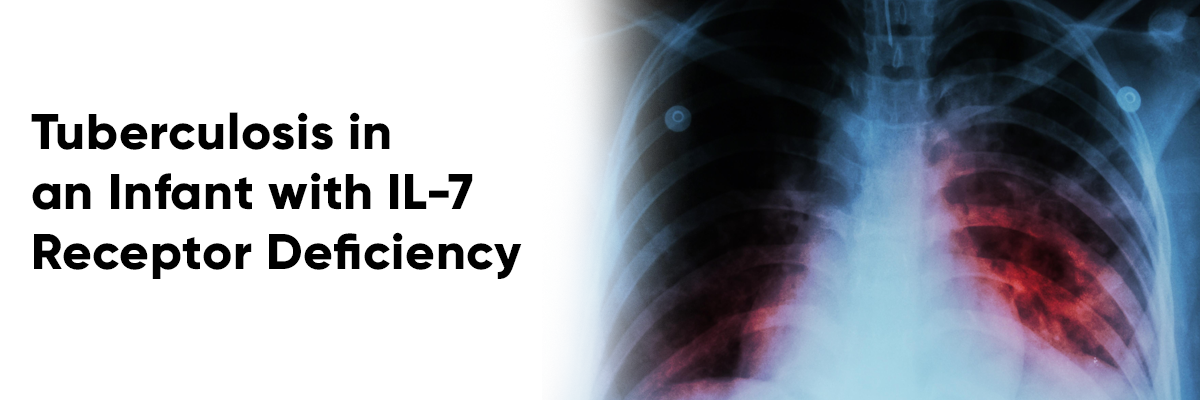
 IJCP Editorial Team
IJCP Editorial Team
Tuberculosis in an Infant with IL-7 Receptor Deficiency
A 5-month-old female infant was hospitalized due to pneumonia, which quickly progressed to respiratory failure.
Immediate intervention included the initiation of noninvasive ventilation, anti-infection treatment, and systemic tests.
The baby’s immune index indicated a significant reduction in T-cell count but normal B-cell levels, natural killer (NK) cells, and normal immunoglobulin levels. Chest computed tomography (CT) showed extensive infiltrations with consolidations.
Next-generation sequencing (NGS) of bronchoalveolar lavage fluid confirmed the presence of tuberculosis (TB), supported by the detection of TB-DNA in the secretions (5.13 × 10^2 copies/ml). Genetic analysis was conducted for suspected congenital immunodeficiency, revealing amino acid changes in exon 1 of the Interleukin-7 receptor α (IL-7RA) gene (c.37delT) from the mother and in exon 4 of IL-7RA (c.361dupA) from the father, both leading to frameshift mutations.
Consequently, a diagnosis of severe combined immunodeficiency disease (SCID) due to IL-7RA gene defects complicated with TB infection was established.
The treatment plan included anti-TB agents combined with supportive therapy.
Over the next year, the infant experienced several infections affecting the respiratory and digestive systems, along with recurrent suppuration from her BCG scar. At 18 months of age, a severe disseminated TB infection emerged, causing hepatosplenomegaly, peritoneal effusion, tubercular meningitis, and uncontrolled fever, ultimately threatening her life and leading to her parents discontinuing medical care.
IL-7 receptor deficiency results in the abolition of T cell development and function (T−B+NK+), causing SCID within the first six months of life. Due to the absence of adaptive immunity, affected patients suffer from severe, persistent infections, often with opportunistic pathogens, and typically do not survive infancy without hematopoietic stem cell transplantation (HSCT), as illustrated in this case.
Early recognition through newborn screening is crucial. This case highlights a novel mutation of the IL-7RA gene, emphasizing the critical importance of early diagnosis and treatment of SCID to prevent mortality, reduce morbidity, and enhance the quality of life.
Source: Jin J, Yu H. Indian JPediatr. 2024;91(2):202-.

IJCP Editorial Team
Comprising seasoned professionals and experts from the medical field, the IJCP editorial team is dedicated to delivering timely and accurate content and thriving to provide attention-grabbing information for the readers. What sets them apart are their diverse expertise, spanning academia, research, and clinical practice, and their dedication to upholding the highest standards of quality and integrity. With a wealth of experience and a commitment to excellence, the IJCP editorial team strives to provide valuable perspectives, the latest trends, and in-depth analyses across various medical domains, all in a way that keeps you interested and engaged.





















Please login to comment on this article